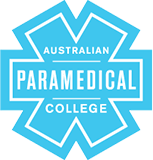
This role has a low level of AI exposure. Core skills such as adaptability, social intelligence, and complex physical tasks remain beyond the capabilities of current AI.
Explore all careersAn Industrial Medic delivers emergency healthcare at remote work sites, responding to accidents, managing injuries, and coordinating patient transport.
Get qualified to work as an Industrial Medic with a course recognised across Australia. Speak to a training provider to learn more.



In Australia, a full time Industrial Medic generally earns $1,500 per week ($78,000 annual salary) before tax. This is a median figure for full-time employees and should be considered a guide only. As you gain more experience you can expect a potentially higher salary than people who are new to the industry.
 Courses.com.au Team
Courses.com.au Team
There has been a strong increase in employment numbers in this sector in recent years. There are currently 19,700 people working in this field in Australia and some of them specialise as an Industrial Medic. Industrial Medics are usually stationed in remote or isolated parts of Australia.
Source: Australian Government Labour Market Insights
 Courses.com.au Team
Courses.com.au Team
If a career as an Industrial Medic interests you, consider enrolling in a Certificate IV in Health Care. This course will prepare you to respond to a range of medical emergencies and includes a work placement so you can gain real world experience. A Diploma of Paramedical Science would also be appropriate.
 Courses.com.au Team
Courses.com.au Team
Browse occupations related to Industrial Medic



Embarking on a career as an Industrial Medic can be a rewarding experience, especially in Canberra, where there is a growing need for skilled professionals in this vital field. The Industrial Medic courses in Canberra provide robust training opportunities for those looking to enter this industry. With two beginner courses available, individuals with no prior experience can seamlessly transition into this fulfilling role. Notable courses include Provide Pain Management PUAEME008 and Provide Emergency Care for Suspected Spinal Injury PUAEME007, designed to equip students with essential skills for emergency care.
Completing an Industrial Medic course in Canberra opens doors to numerous job opportunities, providing a pathway to varied career options. Upon successful completion of your training, you may choose to pursue roles such as an Emergency Medical Technician, or perhaps aim for a position as an Aviation Medic. For those intrigued by patient transport, the role of a Patient Transport Officer is another exciting avenue to explore. Each of these roles plays a crucial part in ensuring the health and safety of individuals in diverse environments.
In Canberra, the demand for healthcare professionals continues to rise, especially within the emergency services sector. Graduates of Industrial Medic courses can find job prospects in organisations like the Australian Defence Force Medic or leverage their training to become an Emergency Medical Dispatcher. Additionally, opportunities also exist as an Emergency Services Officer or even as a Volunteer Ambulance Driver, contributing dramatically to community health and safety.
Taking the first step towards a career as an Industrial Medic is not only about gaining certifications but also about making a meaningful impact in Canberra's healthcare landscape. The Industrial Medic courses in Canberra are perfectly tailored for those eager to embark on this journey. Courses such as the Provide Pain Management PUAEME008 and Provide Emergency Care for Suspected Spinal Injury PUAEME007 will prepare you for an exciting career path. As you complete your training, consider the prospects that await you, including becoming an Ambulance Service Paramedic or a qualified Paramedic, further enhancing your role within the community.